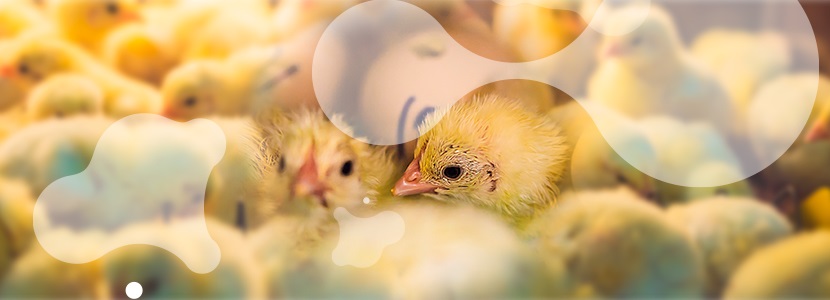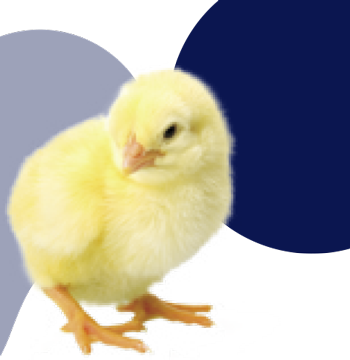
Content available at:
Português (Portuguese (Brazil))
The complexity of the gastrointestinal ecosystem is extraordinary. The amount of bacterial cells present in the animal’s microbiota exceeds the total number of somatic cells.
The interaction between host and microorganism has not been fully elucidated, but the functions of the microbiota on the gastrointestinal tract (GIT) are already described and comprise:
Modulation of the immune system
The production of organic acids and the use of nutrients
Maintaining intestinal integrity and stimulating enterocyte renewal
Adsorption and breakdown of toxins
The competition and exclusion of pathogens
In non-commercial farms or in the wild, once the chicks hatch, they are exposed to natural microorganisms from the adult birds and the environment.

On the other hand, under commercial conditions, contact and transfer of the microbiota in its natural form are minimal or non-existent.
Therefore, the GTI of recently hatched chicks is practically exposed to colonization by microorganisms present:

shipping boxes
on the farm
It is important to consider that the neonatal period is the most important moment in the development of the digestive and immune systems of birds, and this development is positively influenced by the presence of an adequate microbiota (Pedroso, 2011).
Most of the composition and density of the microbiota depend on the bacteria that the birds receive during the hatching period and on their first diet.
Bacteria that colonize the first days of life of chicks grow very fast, and the intestine becomes inhabited by 108 and 1011 bacteria per gram of digesta in the ileum and cecum respectively between the first and third day of life (Yadav & Jha, 2019).
PREVENTION
In industrial poultry farming, most microorganisms present in environments to which birds are exposed in the neonatal period are not the most suitable for the early colonization of GIT.

This gap in the development and neonatal colonization of GIT generated great research opportunities in the area of administration of beneficial bacteria (probiotics) in the first moments of the life of birds.

Although the administration of probiotics during rearing is effective, the interval between hatching and housing is a delicate period and very important to maximize the productive and sanitary performance of the birds.
This break period consists of handling and processing the chicks in the hatchery, such as screening, sexing, vaccination, waiting room time, and transport. During all these steps, the chicks are in contact with microorganisms present in the environment and in the fomites.
GIT COLONIZATION
Thus, the GIT, which is in the microbiota establishment phase
Subscribe now to the poultry technical magazine

Layer Longevity Starts at Rearing
H&N Technical Team
The Strategy for a Proper Infectious Bronchitis Control
Ceva Technical Team
Elevate Hatchery Performance with Petersime’s New Data-Driven Incubation Support Service
Petersime Technical Team
Maize and Soybean Meal Demand and Supply Situation in Indian Poultry Industry
Ricky Thaper
Production of Formed Injected Smoked Chicken Ham
Leonardo Ortiz Escoto
Antimicrobial Resistance in the Poultry Food Chain and Novel Strategies of Bacterial Control
Edgar O. Oviedo-Rondón
GREG TYLER INTERVIEW
Greg Tyler
Insights from the Inaugural US-RSPE Framework Report
Elena Myhre
Newcastle Disease: Knowing the Virus Better to Make the Best Control Decisions. Part II
Eliana Icochea D’Arrigo
Avian Pathogenic E. coli (APEC): Serotypes and Virulence
Cecilia Rosario Cortés
The Importance of Staff Training on Animal Welfare Issues in Poultry Industry
M. Verónica Jiménez Grez
Rodent Control is a Key Factor in Poultry Biosecurity and Sustainability
Edgar O. Oviedo-Rondón